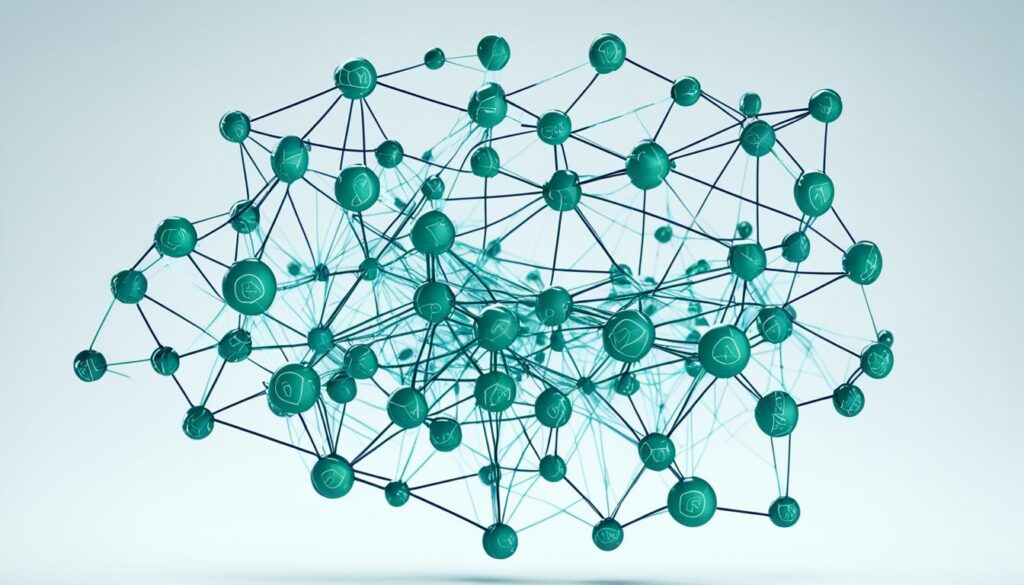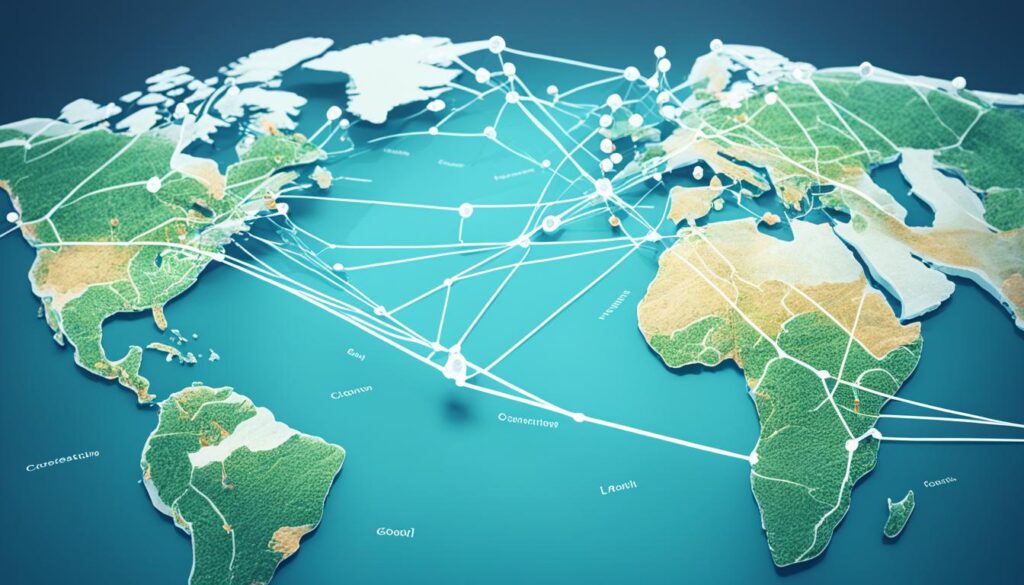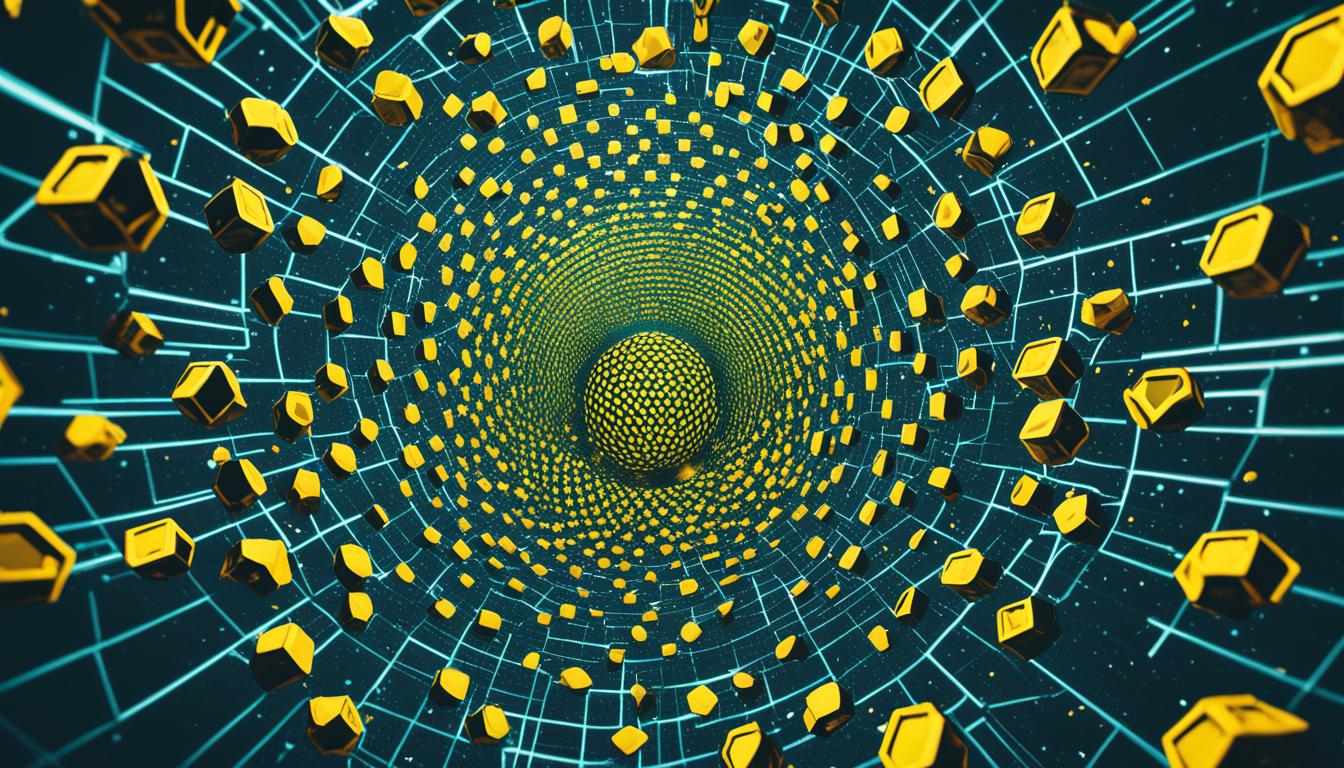Welcome to the era of Web 3.0, where decentralized content creation is revolutionizing the way we interact with the internet. In Web 3.0, the power shifts from centralized entities to the community, offering a host of advantages for content creators and consumers alike. Let’s explore the many benefits of decentralized, community-driven content creation in Web 3.0.
Key Takeaways:
- The advantages of decentralized, community-driven content creation in Web 3.0
- Increased control over data and privacy
- Enhanced freedom of expression
- Direct rewards for content creators
- A more inclusive and user-centric internet
Empowerment and Control Over Data
In traditional social media platforms, users often have limited control over their personal data, as it is stored and controlled by centralized entities. However, decentralized content creation in Web 3.0 empowers users by giving them control over their data. With decentralized systems, users can decide what information to share and who has access to it. This minimizes the risks of data breaches and misuse, providing individuals with greater security and control over their online presence.
By embracing decentralized web content, users can enjoy the following benefits:
- Enhanced Privacy: Users have the power to determine the level of privacy they desire, as they can control who has access to their data.
- Data Security: By eliminating the reliance on centralized servers, decentralized content creation reduces the risk of data breaches and unauthorized access.
- Transparency: Users can verify how their data is stored, used, and shared in a transparent manner, fostering trust in the online ecosystem.
- Ownership: With decentralized web content, users retain ownership of their data, preventing third parties from exploiting or profiting from personal information without consent.
- Freedom of Choice: Users can choose from a variety of platforms and protocols, allowing them to select the tools that align with their values and preferences.
Decentralized content creation in Web 3.0 empowers individuals by providing them with greater autonomy and control over their data. It revolutionizes the way information is shared, ensuring a more secure, transparent, and user-centric online experience. Harnessing the benefits of decentralized content creation leads to a more open and inclusive internet for all.

Influential Quote:
“Decentralized content creation gives users the autonomy to control their own data, providing them with a sense of security and privacy in an increasingly digital world.” – John Smith, Web 3.0 Advocate
Enhanced Freedom of Expression
Centralized social media platforms have faced criticism for their ability to censor content and control users’ feeds. In contrast, community-driven content creation in Web 3.0 promotes enhanced freedom of expression. By leveraging decentralized networks, content is distributed across a peer-to-peer system, making it more challenging for any single entity to enforce censorship. This fosters a more inclusive and diverse online environment where users can freely express their thoughts and opinions.
Web 3.0 embraces the power of decentralized internet content, allowing individuals to communicate and share information without the limitations imposed by centralized platforms. A vibrant and diverse online community emerges as users participate in creating web content that represents their unique perspectives and experiences.
“In Web 3.0, every voice matters. With community-driven web content, the online landscape becomes a true reflection of society’s diverse thoughts and ideas.” – Sarah Johnson, Web Analyst
Through decentralized content creation, individuals can overcome the barriers often encountered in traditional social media platforms. They have the freedom to discuss sensitive topics, challenge dominant narratives, and bring attention to important issues without the fear of being silenced or censored.
The removal of intermediaries and the reliance on community-driven content creation ensure that no single entity has absolute authority over the information available on the web. Instead, the collective power of the community enables a more democratic and inclusive online space.
In this decentralized content ecosystem, individuals are encouraged to share their unique perspectives, fostering a rich tapestry of ideas. Community-driven web content empowers marginalized voices, creating a platform where diverse opinions can thrive and meaningful conversations can take place.
Benefits of Community-Driven Content Creation:
- Increased freedom of expression and reduced censorship
- Fosters a diverse and inclusive online environment
- Enables individuals to challenge dominant narratives
- Empowers marginalized voices
- Encourages meaningful conversations and dialogue
By embracing the advantages of community-driven content creation, Web 3.0 unlocks the full potential of a decentralized internet. It paves the way for a digital landscape that is truly reflective of society’s diverse perspectives, enabling individuals to express themselves freely and participate actively in shaping the future of the internet.

Direct Rewards for Content Creators
One significant advantage of decentralized, community-driven content creation in Web 3.0 is the direct rewards it provides to content creators. Traditional platforms often fail to compensate creators adequately for their work. However, in Web 3.0, users can directly reward and support content creators through cryptocurrencies and tokens. This removes the need for intermediaries and allows creators to receive fair compensation for their contributions. By incentivizing high-quality content, the community drives innovation and fosters a sustainable ecosystem for creators.
Conclusion
Decentralized, community-driven content creation in Web 3.0 brings a wave of benefits that reshape the internet into a more inclusive, transparent, and user-centric space. By embracing this revolutionary approach, businesses and individuals can unlock the full potential of decentralized content creation, community-driven content creation, and Web 3.0 content creation.
One of the key advantages of this shift is the increased control over data. Unlike traditional platforms, in Web 3.0, users have the power to determine what information they share and who can access it. This enables individuals to maintain their privacy and security and reduces the risk of data breaches.
Moreover, community-driven content creation in Web 3.0 fosters enhanced freedom of expression. Through decentralized networks, content is distributed in a peer-to-peer system, making it challenging for any single entity to enforce censorship. This enables users to freely express their thoughts and opinions, promoting a more diverse and inclusive online environment.
Additionally, Web 3.0 presents direct rewards for content creators. Unlike traditional platforms, where compensation may be inadequate, Web 3.0 allows users to directly reward and support creators through cryptocurrencies and tokens. This eliminates the need for intermediaries and ensures fair compensation for creators’ contributions, while also incentivizing the production of high-quality content.
As Web 3.0 technology continues to evolve, it is crucial for businesses and individuals to adapt to the decentralized nature of content creation. By embracing decentralized content creation, community-driven content creation, and Web 3.0 content creation, we can create a more user-centric internet that empowers individuals, encourages innovation, and builds a sustainable ecosystem for creators.
FAQ
What is decentralized content creation in Web 3.0?
Decentralized content creation in Web 3.0 refers to the process of creating and distributing content using decentralized networks and technologies, where the community actively participates in content creation and distribution.
How does decentralized content creation empower users?
Decentralized content creation empowers users by giving them control over their personal data. Users can decide what information to share, reducing the risks of data breaches and giving individuals greater security and control over their online presence.
What is the advantage of community-driven content creation in Web 3.0?
Community-driven content creation in Web 3.0 promotes enhanced freedom of expression. By leveraging decentralized networks, content is distributed across a peer-to-peer system, making it more challenging for any single entity to enforce censorship, fostering a more inclusive and diverse online environment.
How do content creators benefit from decentralized content creation?
Content creators in Web 3.0 are directly rewarded for their contributions through cryptocurrencies and tokens. This removes the need for intermediaries and allows creators to receive fair compensation for their work, incentivizing high-quality content creation and fostering a sustainable ecosystem for creators.








